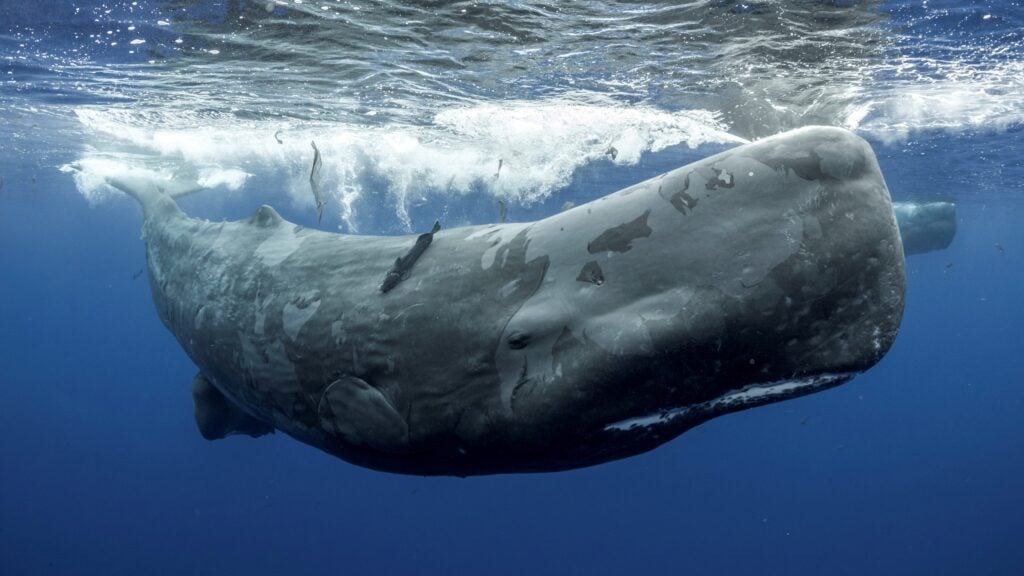Sperm whales are majestic creatures that are well known for their friendliness towards humans. Although they generally cause no harm, there have been reports of serious injuries and even death. But how does this happen?
Diving with sperm whales is recreational and educational for most divers. Despite the whales’ kind behavior, their loud clicks are reported to cause serious injuries like paralysis, and even death.
The Majestic Sperm Whales
Sperm whales, or Physeter macrocephalus, are massive carnivorous mammals, with their size similar to that of a bus. Their overall width ranges from 49 to 59 feet, with their maximum weight reaching 45 tons. Additionally, the International Union for Conservation of Nature lists sperm whales as vulnerable in their IUCN Red list. Sperm whales are known for their large heads and rounded protruding foreheads, which directly correlates to the large size of their brain.
Sperm whales have the biggest-sized brain among all animals, including animals that are currently extinct. The heads of sperm whales are known to contain an abundance of a specific fluid called spermaceti. Its function is unknown; experts in National Geographic theorize that spermaceti helps the buoyancy of sperm whales, as they’re well known for their skill in deep diving.
Sperm whale pods contain fifteen to twenty whales. The sperm whale groups usually include female whales and their calves, while adult sperm whale males tend to transfer from different groups.
There is a distinguishable pattern between the behavior of female and male sperm whales. While female sperm whales prefer tropical climates where they practice the concept of communal childcare, adult sperm whales commonly move to waters with higher latitudes, only returning to the equator to breed. Adult sperm whales may either travel individually or by group.
In general, whales are known for their vocal abilities; this does not exclude the sperm whales because they’re also very vocal, producing a series of sounds utilized for communication or echolocation. Echolocation determines the location, size, and shape of their targeted object. (Source: National Geographic)
The Danger of Diving with Sperm Whales
Since sperm whales are known for their deep-diving abilities, many humans would take that as an opportunity to dive with the whales. The sperm whale’s behavior towards the divers isn’t a threat because of their friendliness and general lack of hostility.
Tending to avoid unfamiliar noises, sperm whales immediately move away once they hear the sounds produced by scuba equipment. Meaning, the only method to be near a sperm whale is to free dive.
Albeit sperm whales have no intention of harming the surrounding human divers, they unintentionally still cause pain. Sperm whales are unimaginably loud, with their sounds of clicks described as “flesh penetrating” by divers. Their clicks are purposely ear-splitting to maintain communication with other whales even thousands of miles away; with that said, a diver’s eardrums can be damaged easily by the clicks they produce. The clicks of a sperm whale can even vibrate a diver to their death.
As stated by divers, the common side effects that the clicks of the sperm whale induce are incomplete paralysis and general body heating. (Source: For Scuba Divers)
